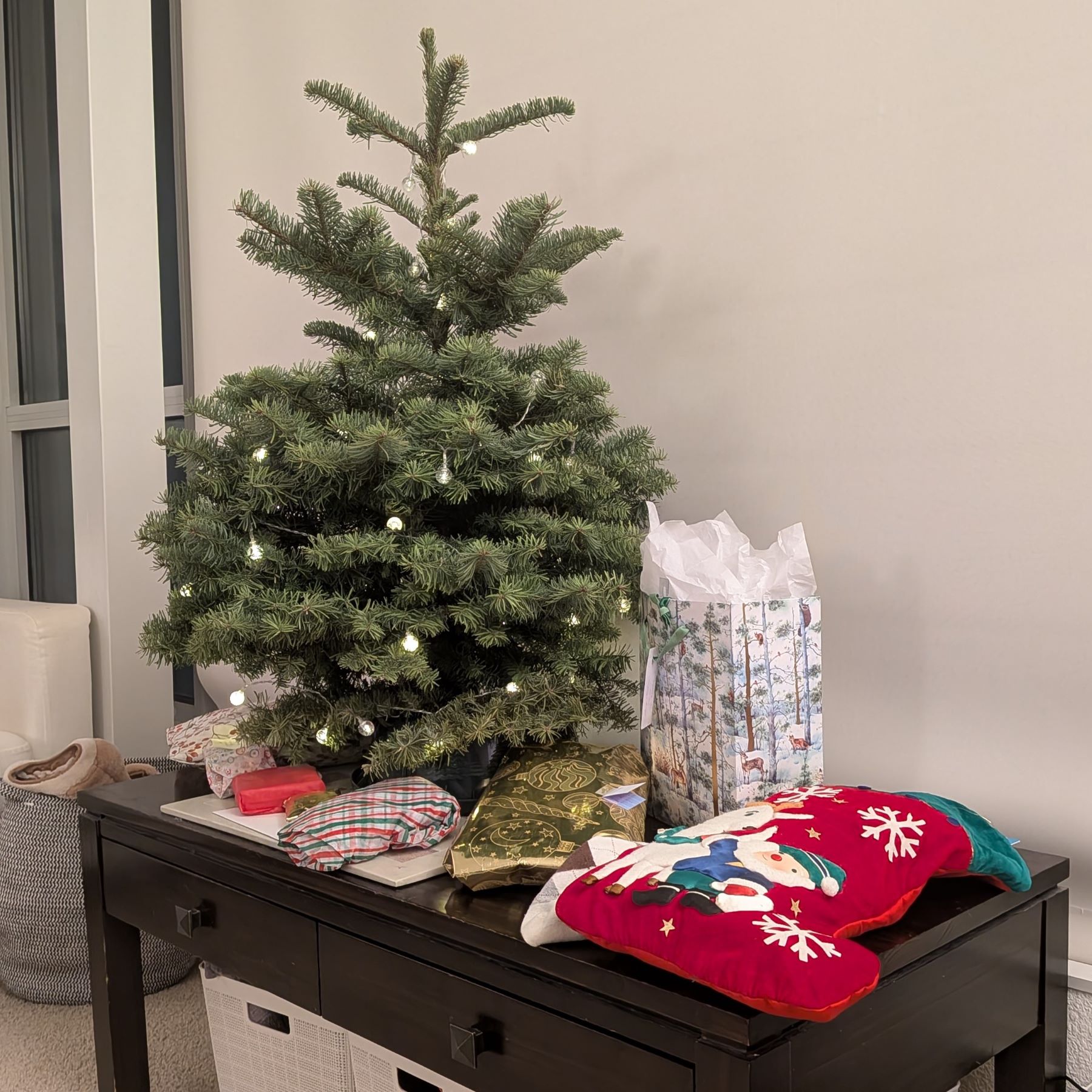Christmas Morning
2025-12-25
Later in the day, we had leftover lasagna, then walked around Crissy Field in between breaks from the rain. Evening brought more leftover lasagna, which we enjoyed while watching Wake Up Dead Man. A wonderful Christmas.

“The internet is dead,” many are saying. The arguments are persuasive: search engine results aren’t very useful anymore, ads are constant, and corporate social networks seem to be mostly bots sharing AI slop.
But the internet has died before. I spent my youth on Usenet groups, chatting on IRC channels and downloading games from FTP sites. Now those spaces are ghost towns—if they exist at all.
Today’s internet is heading in a similar direction and I think it’s fine. Maybe even better than fine, if the next iteration is less corporate and more human. Maybe the scale will be different (millions instead of billions of people), but the internet of the 80s and 90s was much smaller and it was still fun and useful.
Published in The San Franciscan, 1884.
I’m sick of the bustle and strife,
And the men and the women I meet—
This moving, breathing chaos of life
That surges along the street.
Silent and jealous and proud—
However much I may seek,
There’s not a person in all the crowd
To whom I may dare to speak.